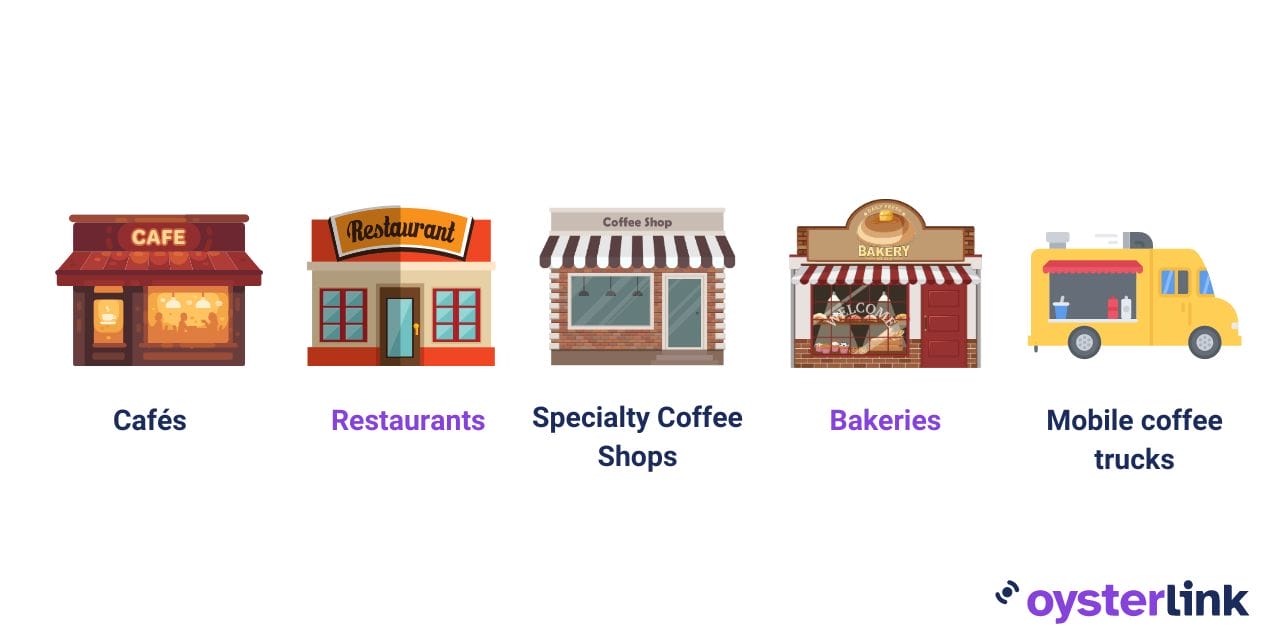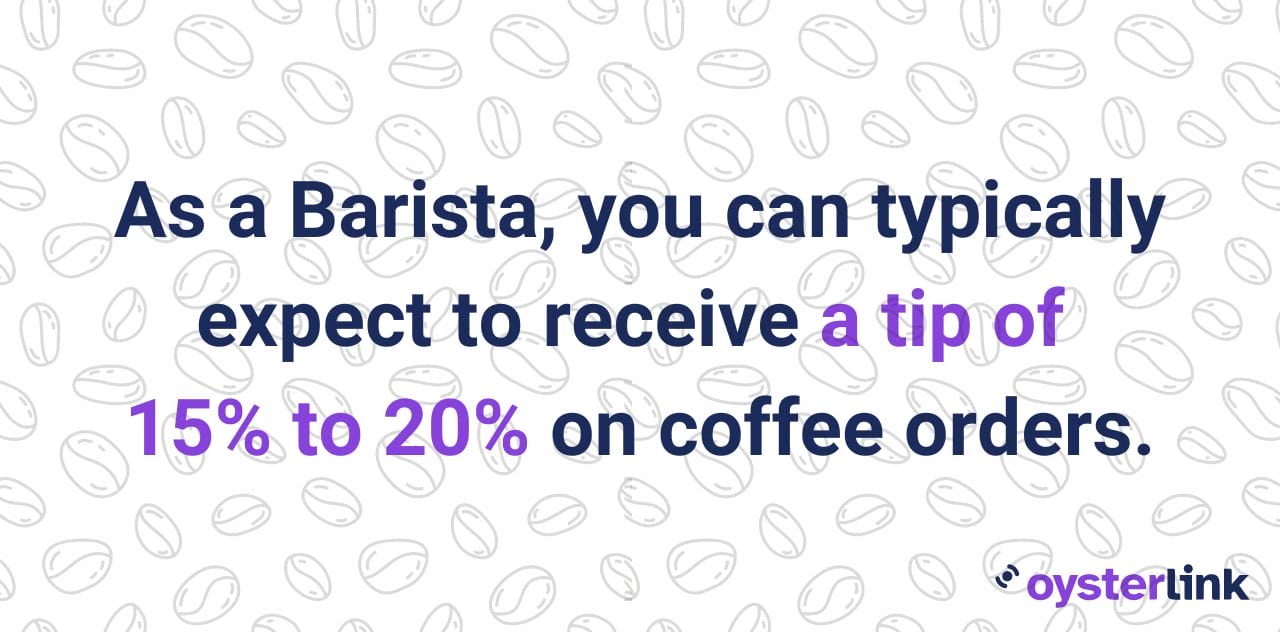How Much Does a Barista Make?
Using our salary data collection methodology, we determined the average Barista salary in the U.S. to be $34,825 per year or approximately $2,902 per month.
How Much Does a Barista Make Hourly?
Most Baristas are paid hourly wages. That said, the average wage for Baristas in the U.S. is $16.74 per hour.
How Much Does a Barista Make Weekly?
The average weekly salary for Baristas in the U.S. is $669.71.
Barista Salary by Location
Baristas in the District of Columbia ($39,521), Oregon ($37,984) and California ($37,933) earn the highest average salaries. Meanwhile, those in Georgia ($28,046), Michigan ($31,766) and Mississippi ($23,755) earn the lowest.
High Barista salaries in D.C., Oregon, and California likely reflect a higher cost of living and competition for Baristas, unlike states with lower minimum wages and living costs.
The table below displays Barista salaries in all 50 states and the District of Columbia, sorted from highest to lowest.
| State | Avg. Salary |
|---|---|
| District of Columbia | $39,521 |
| Oregon | $37,984 |
| California | $37,933 |
| Massachusetts | $37,635 |
| Hawaii | $36,965 |
| Washington | $36,961 |
| Maine | $36,262 |
| Rhode Island | $36,007 |
| Alaska | $35,732 |
| New Hampshire | $35,271 |
| Maryland | $35,612 |
| New Jersey | $35,303 |
| Colorado | $35,002 |
| Minnesota | $32,118 |
| Montana | $32,503 |
| Connecticut | $32,351 |
| Vermont | $33,976 |
| Illinois | $33,203 |
| New York | $34,212 |
| Delaware | $31,122 |
| Florida | $31,653 |
| North Carolina | $31,513 |
| Nevada | $31,392 |
| New Mexico | $31,311 |
| North Dakota | $31,790 |
| Virginia | $31,879 |
| Arizona | $30,910 |
| South Dakota | $30,927 |
| South Carolina | $30,845 |
| Kentucky | $30,707 |
| Missouri | $30,321 |
| Pennsylvania | $30,492 |
| Arkansas | $30,314 |
| Idaho | $29,182 |
| Wyoming | $29,163 |
| Utah | $29,248 |
| Tennessee | $29,284 |
| Texas | $29,139 |
| Ohio | $29,858 |
| Wisconsin | $30,735 |
| Louisiana | $25,433 |
| West Virginia | $26,816 |
| Oklahoma | $27,834 |
| Indiana | $28,668 |
| Nebraska | $28,943 |
| Iowa | $28,067 |
| Kansas | $28,027 |
| Georgia | $28,046 |
| Michigan | $31,766 |
| Mississippi | $23,755 |
Barista Salary in Major US Cities
Out of the four major cities listed below, Los Angeles pays Baristas the highest average salaries ($38,486), followed by New York City, Chicago and Miami.
Annual mean wage $28,998
Annual mean wage $36,735
Annual mean wage $36,686
Annual mean wage $38,486
[Source: Indeed, Salary.com, ZipRecruiter, Glassdoor]
Factors Affecting a Barista’s Pay
Aside from geographic location, here are other factors that influence how much a Barista makes:
Experience and expertise
Baristas with more years of experience and honed skills usually get offered higher salaries. This is due to their extensive knowledge of various coffee blends and brewing techniques, proficiency in latte art and exceptional customer service skills.
Educational background and training
Baristas who have pursued additional certifications, attended specialized courses or participated in Barista competitions will often be offered higher salaries. Such qualifications show a strong commitment to excellence and mastery of the field.
Type of establishment
The type of establishment Baristas work at can significantly impact their earnings. For example, Baristas employed in high-end cafes or specialty coffee shops usually receive higher compensation than those working in coffee shop chains or fast-food joints.
This is often because employers at high-end establishments are willing to offer higher salaries to attract highly skilled baristas who can maintain the quality and reputation of their brand.
The infographic below shows the different types of establishments where Baristas can work.

Shift flexibility
Baristas who are willing to work flexible hours – including early mornings, late evenings and weekends or holidays – will often receive additional pay incentives on top of their base salary.
Negotiation skills
Candidates with strong negotiation skills who can effectively sell themselves to their employer may be able to secure a higher salary either during the hiring process or during performance reviews.
Tips
Baristas often receive tips from customers, which can significantly increase their earnings.
In the U.S., customers typically tip around 15% to 20% for specialty drinks like lattes, cold brews, cappuccinos and custom-made beverages that require extra attention to detail. For drip coffee, Baristas can usually expect at least a $1 tip per cup.

How To Estimate Your Take-Home Pay as a Barista
If you work as a Barista in the United States, use our Paycheck Calculator to easily determine the amount of money you’ll have left after deductions and taxes in your state. All you need to do is follow these steps:
- Enter your gross wage or salary.
- Select your pay frequency from the dropdown menu (annual, monthly, biweekly, weekly, daily or hourly).
- Choose your state.
- Click the Calculate Tax button.
Total Tax
Net pay
Disclaimer: Please note that this paycheck calculator is designed to provide an estimate and should not be considered as professional tax advice. The actual withholding amounts and taxes owed may vary depending on individual circumstances and other factors. For accurate and personalized tax advice, we recommend consulting with a tax professional.
Salary Negotiation Tips for Baristas
Here are a few tips that can help you negotiate your Barista salary more efficiently:
- Research the average salary for the Barista position in your area.
- Highlight relevant experience and education such as years in the industry and Barista certifications.
- Emphasize relevant skills you possess, such as proficiency in espresso preparation, knowledge of specialty coffee blends and customer service excellence.
- Approach the negotiations with confidence, underscoring your value to the team and the company.
- Be open to discussing benefits beyond salary, such as healthcare, paid time off, employee discounts and wellness packages. These benefits and perks can improve your overall compensation package.
Beyond Pay: Perks & Benefits for Baristas
As previously mentioned, Baristas often receive various perks and benefits in addition to their pay. Here are some of the most common ones:
- Health, vision and dental insurance
- Paid time off
- 401(k) and 401(k) matching
- Flexible schedule
- Employee discounts
- Free meals during shifts
- Recognition programs
- Uniform allowance or reimbursement
- Parental leave
- Employee assistance programs
- Commuter benefits
- Life and disability insurance
- Wellness benefits
All these benefits contribute significantly to the overall compensation package by enhancing financial security, work-life balance and job satisfaction.
How Much Do Careers Similar to a Barista Get Paid?
On average, Baristas in the U.S. earn more than Cashiers and Barbacks but less than Waiters/Waitresses and Bartenders.
| Job Title | Average Salary |
|---|---|
| Cashier | |
| Barback | |
| Waiter/Waitress | |
| Bartender |
Barista Salary FAQs
Bonuses or additional compensation for Baristas can vary depending on company policies. Some establishments may offer bonuses based on performance metrics or achieving specific targets, while others may not have such incentives in place.
Yes, seasonal fluctuations in Barista salaries can occur in tourist-heavy areas in peak seasons. Baristas may receive bonuses or increased compensation to manage the higher workload and responsibilities during these busy periods.
Baristas often rely on tips to boost their income. How much they earn in tips really depends on the location of the café or coffee shop, as well as factors like customer traffic and tipping culture in that area.
Pay for Starbucks Baristas varies a lot depending on where the store is located. If you want to know the exact pay rates and typical starting pay at Starbucks, you can check out their career page.